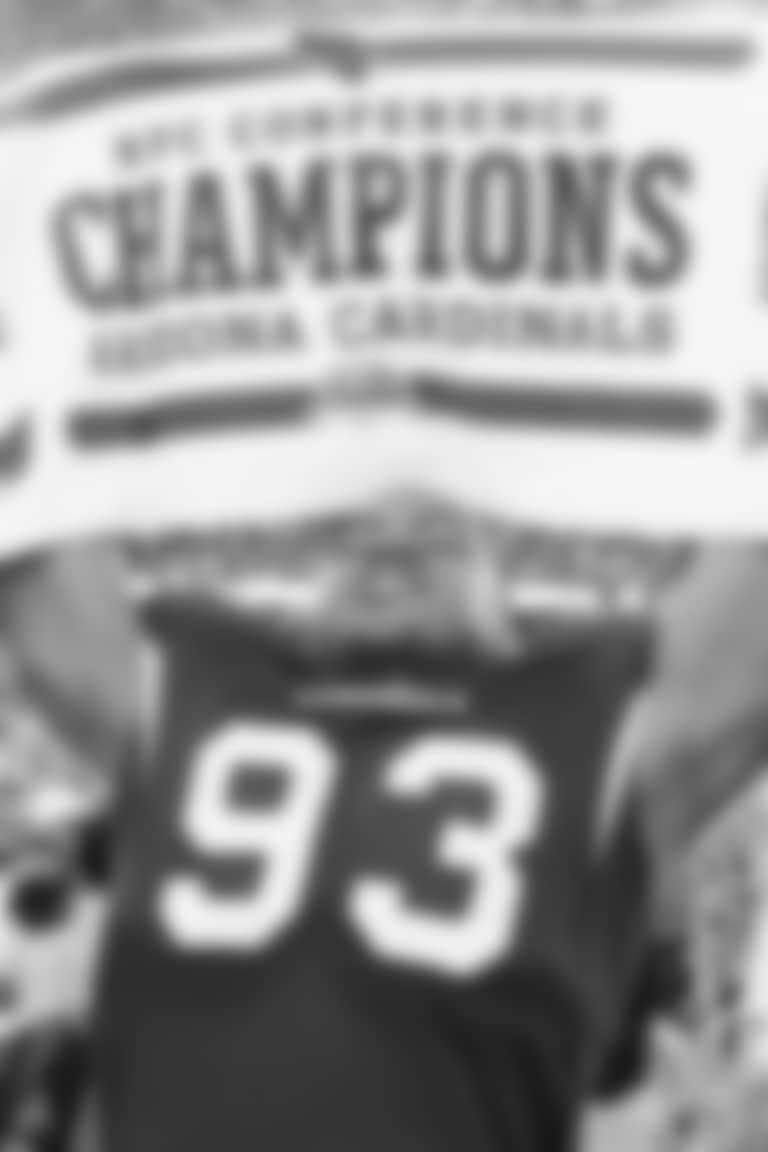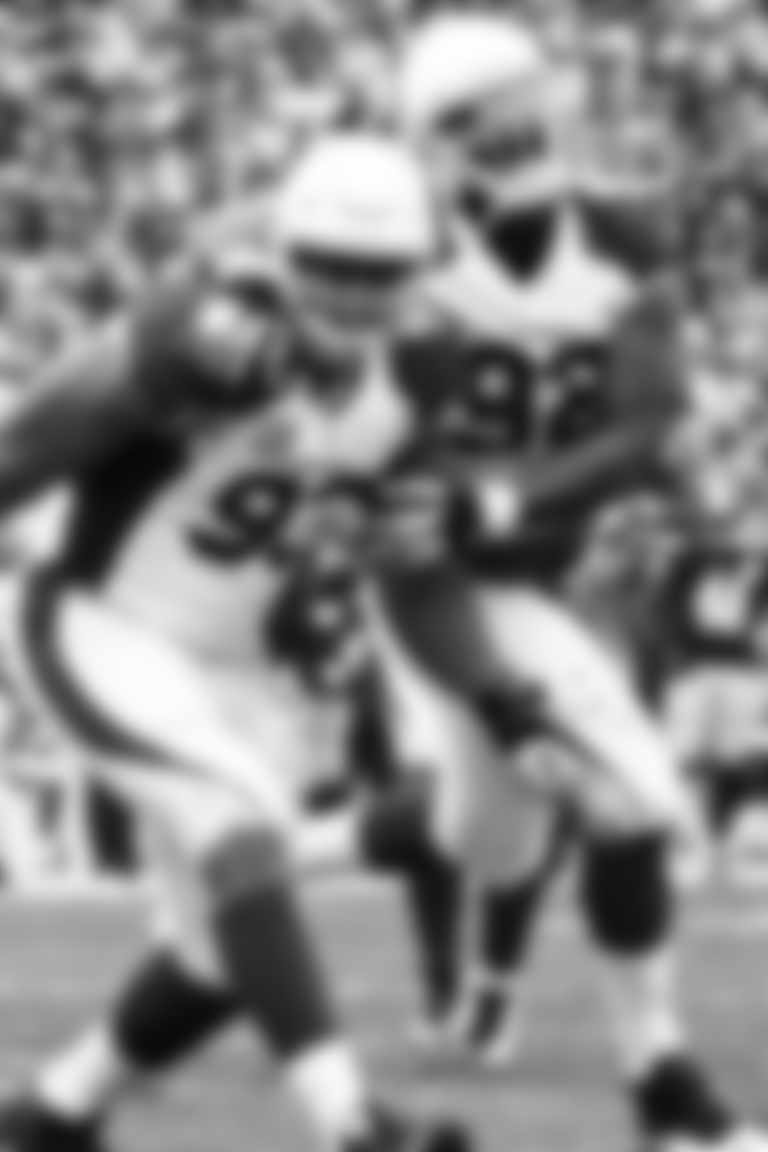Opportunity was there, and to be honest, Calais Campbell was not surprised.
There were teams that had reached out to his agent with interest as March arrived, at least 10, including the Super Bowl participants Chiefs and Eagles. Finding a place to play was not the issue.
Finding a level of motivation was.
Not that the veteran defensive lineman didn't want to play. His love of football was still strong. Yet 17 years in the NFL grinds a man who was going to be 39 when the season arrived (and Campbell just had his birthday Monday, somewhat fittingly, on Labor Day as the Cardinals worked.)
In a scene captured by NFL Films, Campbell thought he was done midway through last season, telling his family at a postgame dinner – coincidentally, after a loss to the Cardinals when he was with the Dolphins – that "I'm probably going to retire." He left the field in his season finale against the Jets at New York taking everything in as if it was the last time.
Even as Campbell heard his agent rattle off the potential destinations for season No. 18, "I was really considering shutting it down."
He wanted to still be an impact player, and when Campbell thinks about it, he knows he would have been in Philly or Kansas City or wherever. But the Cardinals wanted him. They had tried to trade for him soon after that meeting in Miami last season. And there was a pull for Campbell, the idea of returning to the team with which he played the first nine years of his career, a franchise for which he had thought he'd like to play again for his storybook ending.
"Coming back here just made more sense," Campbell said. "A team on the cusp, in position to do some things, young talented guys who need help."
Campbell smiles when asked about being back in the building where he grew up as an NFL player. There are memories, yes. But "I feel my age. I reminisce sometimes how I used to feel. I wish I still felt that way."
That quest to be an impact player hasn't evaporated, however. There was a moment in a recent practice in which he made a play in the backfield, surprising coaches (most of whom are younger than Campbell, it should be noted.) It wasn't that they didn't think Campbell could make the play on a physical level, but that he even saw what he saw pre-snap to blow the play up – it was something most players would not notice.
"My recent history, I can still dominate with the way I feel, and that's what matters," Campbell said. "I still have the ability to take over and make plays. It just might not be every play like I want it to be.
"I tell these young guys, 'I wish you could've seen me.' But my mind is exceptional. And I still have enough athleticism to make the plays I need to make."




















